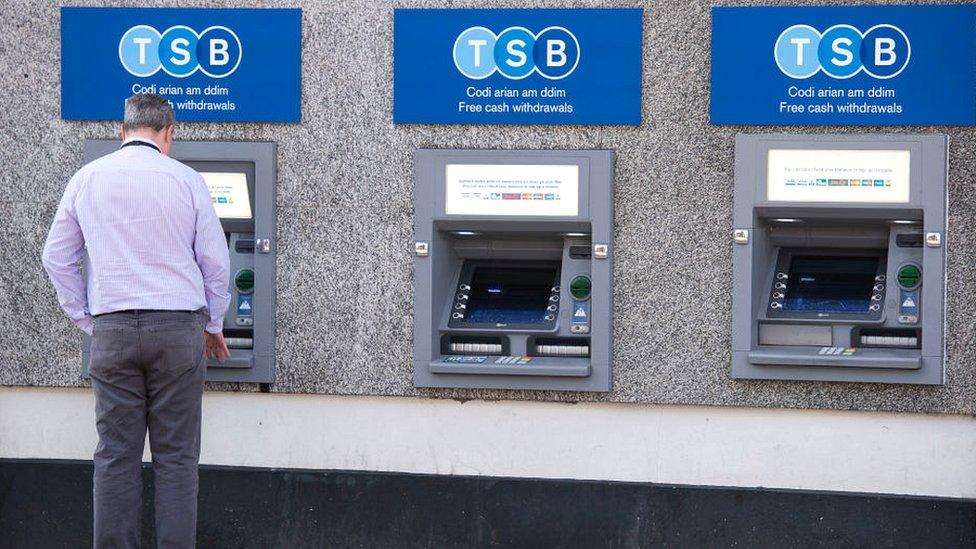A new rural bank branch opening! What's going on?
- Published
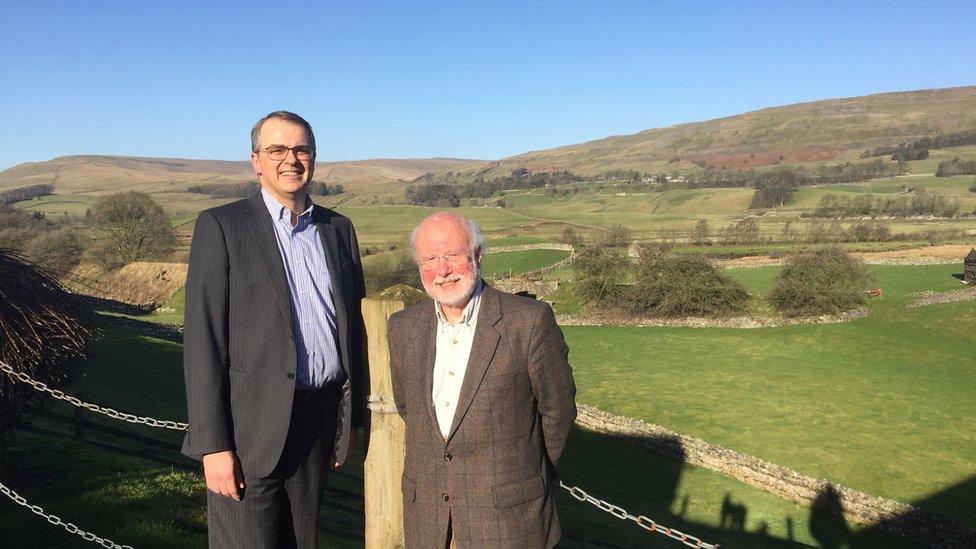
Andrew Haigh, of the Newcastle Building Society, and resident Joe Pilling, in rural Hawes
In one respect, Hawes - a small market town in the Yorkshire Dales - shares the plight of many rural communities. The last bank in town has closed.
HSBC moved out in 2016. Last summer, Barclays shut premises which had hosted a bank branch for more than 150 years. It blamed customers' switch to digital banking. Civic leaders said Hawes had been abandoned.
Now something unusual has happened in this picture postcard town, the home of Wensleydale cheese. A new branch has just opened.
This time it is a building society, the Newcastle. It does not have its own building. It is just an eighth of the size of a normal branch and occupies a corner of the community office alongside the local library and Post Office.
Its size belies some bigger ambitions - a financial services industry trying to work out how to reach customers who are not online, and a community setting a template on how to reinvigorate local provision.

The final bank in Hawes closed last summer
Branch networks are shrinking fast. There were 3,372 closures by banks and building societies in the four years to the end of 2019, according to consumer group Which?.
Banks say fewer are needed, as customers open accounts and manage their money via apps. Consumer groups and less populated areas express outrage each time closures are announced.
Speak to anyone in Hawes, from businesses and clubs to a selection of its 1,000 residents, and they say the departure of the final bank branch was a blow. The name Hawes means pass between mountains, and you pretty much have to do that on the 17-mile journey to Leyburn to find the nearest Barclays branch. That is not easy in the winter months, even for the most mobile. Most customers accounts were moved to Settle, even further away.
The arrival of the Newcastle seems a natural fit.
Hawes - driven for years by John Blackie, a force of nature and local councillor, who died last year - has introduced a community bus service to the nearest railway station, an outreach post office service and even runs its own petrol filling station with a turnover of £2m a year.
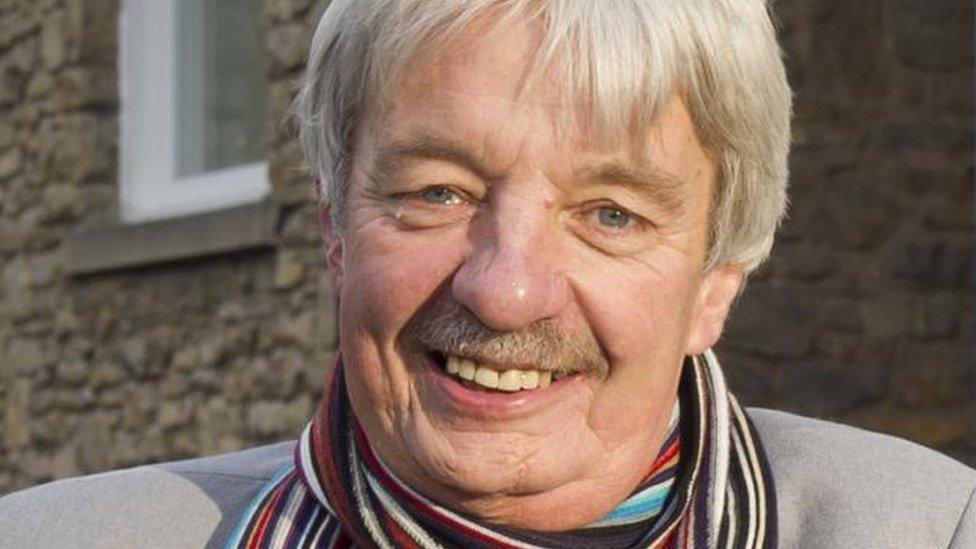
John Blackie was a driving force for Hawes, but died last year
Joe Pilling, the new chairman of the Upper Dales Community Partnership and a retired senior civil servant, says: "The whole economy of a place like this depends on having comprehensive services. If there is a big gap, people are going to have to go elsewhere. That reduces the chance of other services prospering.
"It is important for the shops, it is important for every form of local activity that a building society is here helping to fill the gap left by the banks that have closed."
Barclays has left a free-to-use, functioning ATM here, the Post Office serves the need to process cash and cheques, so the building society - which does not offer a current account - has stepped in to meet savers' needs and advise on more complex financial matters, from mortgages to retirement planning.
Emma Blades, one of a trio of new staff at the branch says customers "prefer convenience to rates". You can find more generous interest on savings from various providers online. They also like a friendly face, she says.
"Not everyone is into internet banking, not everyone has a computer. They feel comfortable and relaxed because they know me and I know them. They can open up more," she says.
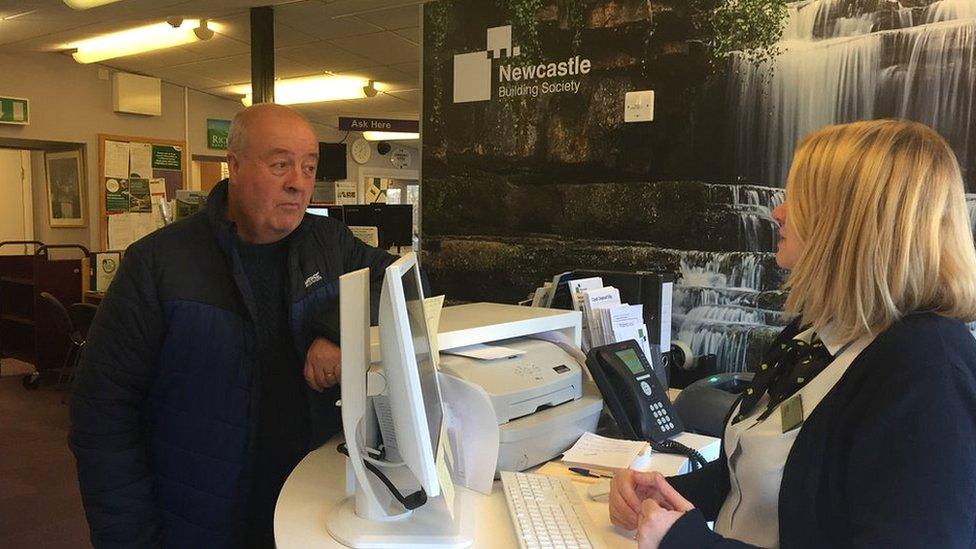
The branch is tiny compared to a regular High Street premises
Her boss, Andrew Haigh, the Newcastle's chief executive, says: "I do not envisage a time when people do not want to talk to other people face to face for their biggest financial decisions. The challenge for us is how to deliver that in a cost-effective way.
"It has to be commercially viable. We are sharing costs, and have a very small footprint. In a town like Hawes it is all about the reputation you build, and you do that over time. We are here for the long-term."
The society is, he points out, owned by its customers, so it needs to be close to those customers. Another similar branch has just opened in a community centre in Wooler in Northumberland.
There is still a lack of options for residents. A lack of competition may mean they are not getting the best deal, but they are not lost in cyberspace.
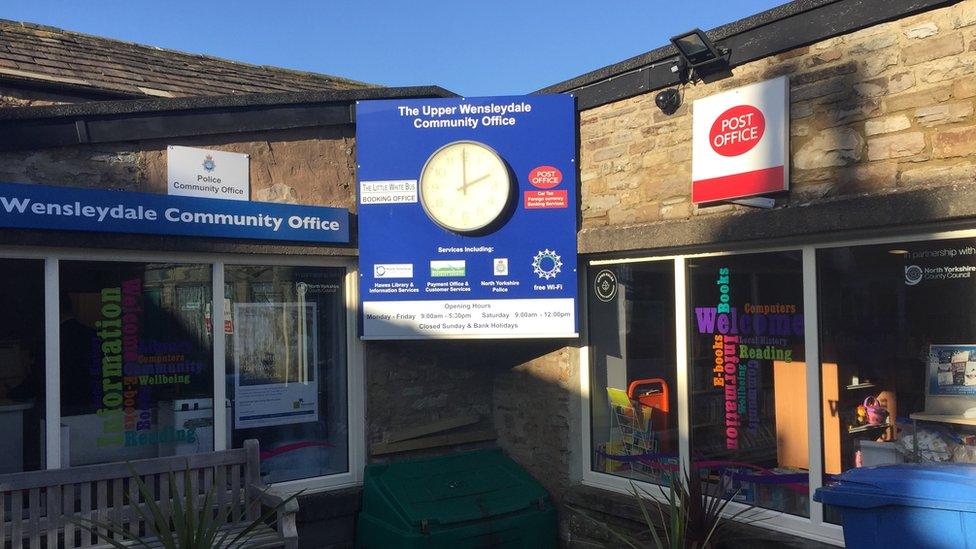
The centre in Hawes also hosts a library, Post Office and council office
Branches like this are overhauling their look, but also their feel. Slowly, the sector is shifting its focus.
Further south, in Leeds, a branch of Yorkshire Building Society (YBS) is also changing the way it operates, for a very specific reason.
It is one of 20 YBS branches that dims the lights, cuts any music, puts the telephone's ringer on low, and switches off screens for Quiet Hour - the final hour of opening on a Wednesday afternoon.
Some people, particularly those with autism or hearing difficulties, find the constant bombardment of noise distressing, or at least a distraction.
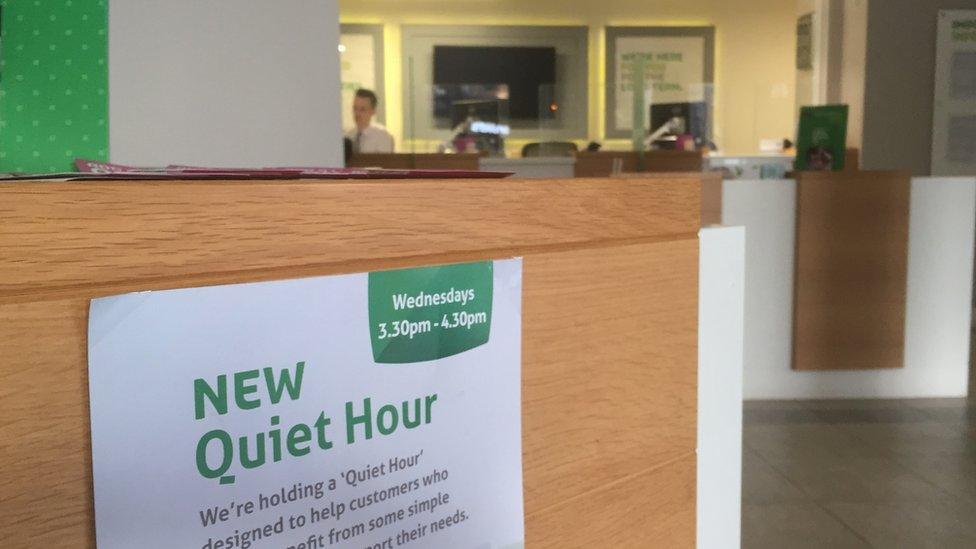
The quiet hour starts late on a Wednesday
One customer visiting the Leeds branch during the quiet period says it is a good idea.
"I've just lost my husband and I find it easy to talk to them. If elderly people come in who don't like noise and bright lights, it is really good to have it," she says.
Janis Hambling, who leads the vulnerable customer support team, says that the quiet hour is designed for anyone who appreciates a calmer environment to talk to the staff.
"It is not just the customers, but also colleagues who like it. We just want to remove a barrier for anyone," she says.
There is a sense of calm in the branch, at odds with the busker outside who has just been belting out, with no sense of irony, The Sound of Silence by Simon and Garfunkel.
But, for something billed as popular, one hour at the end of a quieter day in the week seems a token effort.
Ms Hambling argues that the experiment is still in its early stages, in just 20 of 143 YBS branches.
"For now, we want to get it to more branches and learn from it. There are people who are worried about waiting at the counter or need longer to articulate themselves, so we make sure we have a private space in the branch for them too," she says.
Every individual is different, but those with some mental health conditions or disabilities can find a calmer environment helpful. Noise can prompt anxiety.
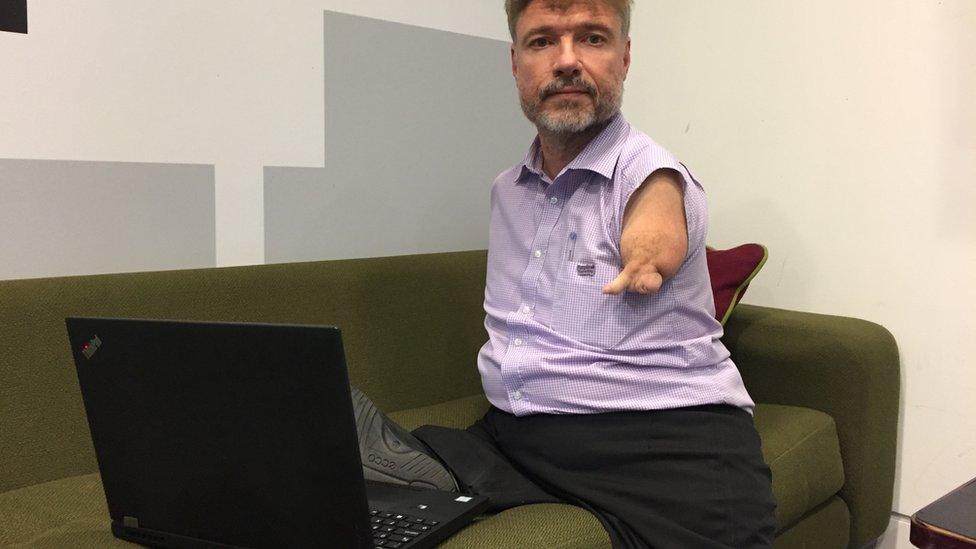
Mike Adams says quiet hour trials have not always worked
Mike Adams, chief executive of Purple, which aims to highlight the spending power of people with disabilities, also argues that quiet hours can be attractive to non-disabled people. He says that they have been introduced formally in a number of sectors, to specifically help those with autism or Asperger's.
Everything from switching off music to silencing hand dryers in toilets can help people with these conditions, he says. Yet initial trials, in places such as shopping centres, missed the mark.
"A quiet hour on a Tuesday morning was not quite working," he says. "Nights can be quite chaotic for these people, so they won't be shopping early after a sleepless night. We are working with them to switch quiet hours to lunchtime or early afternoon."
Another change, as businesses with bricks and mortar premises realise they must adapt to survive.
- Published12 November 2019

- Published24 September 2019

- Published25 November 2019
